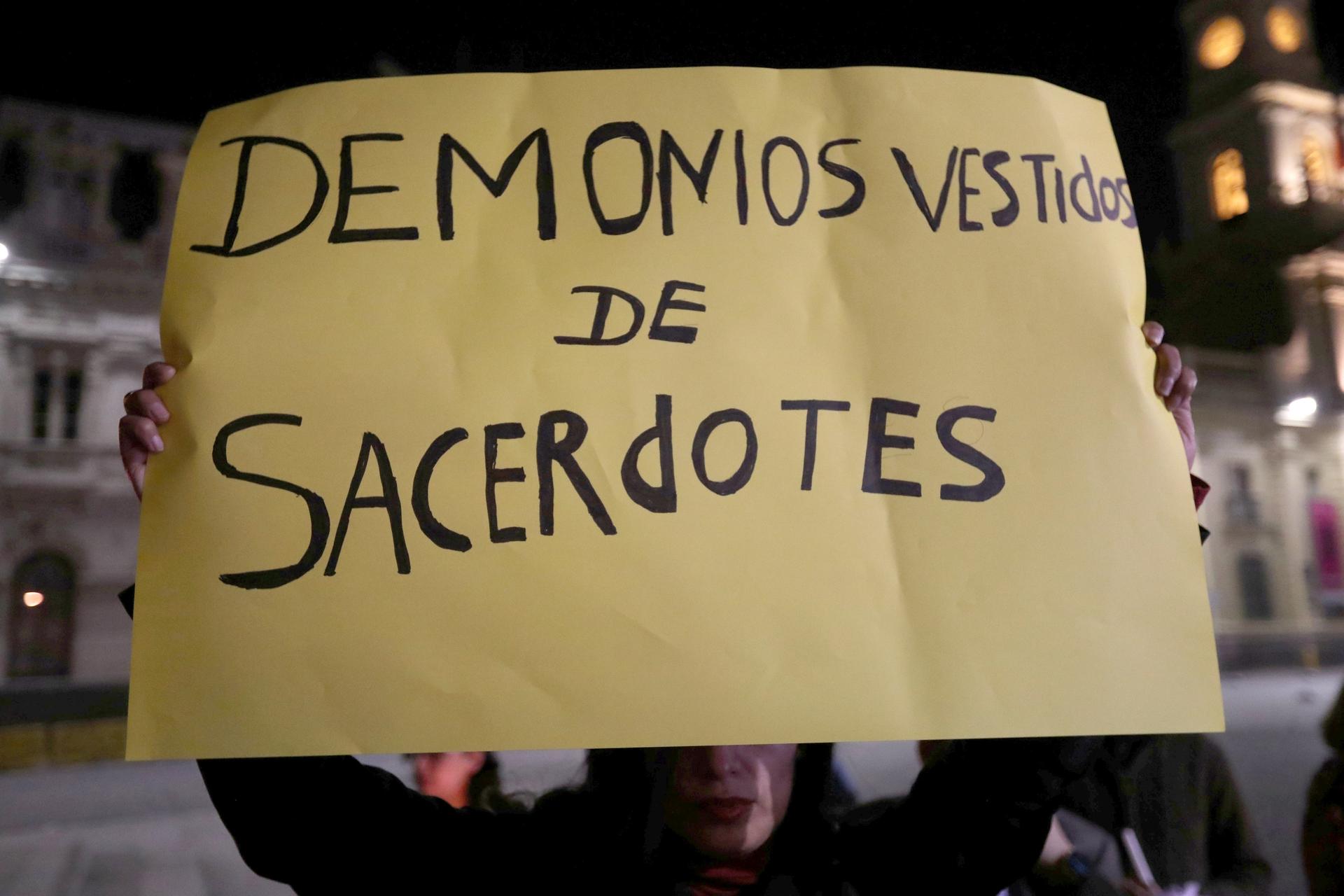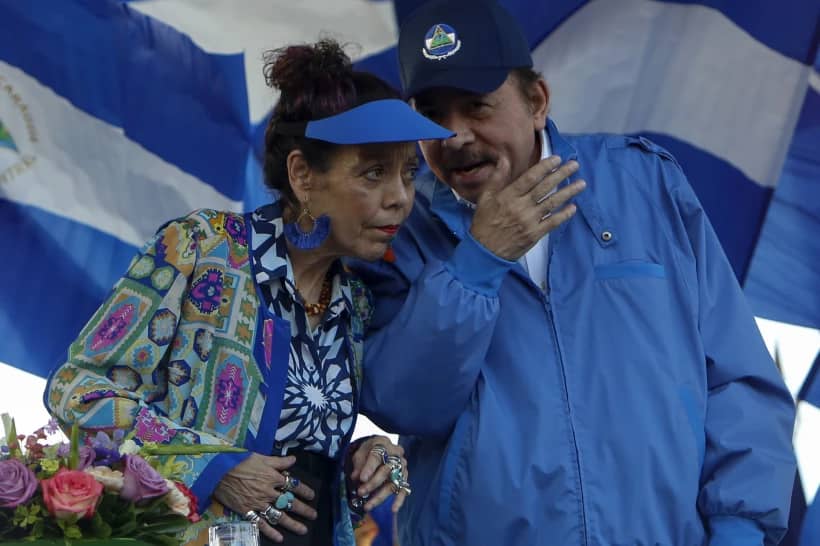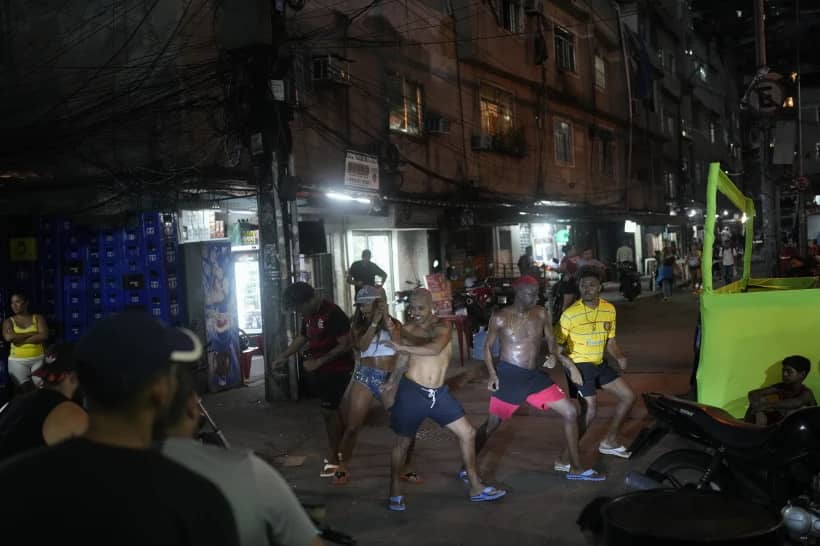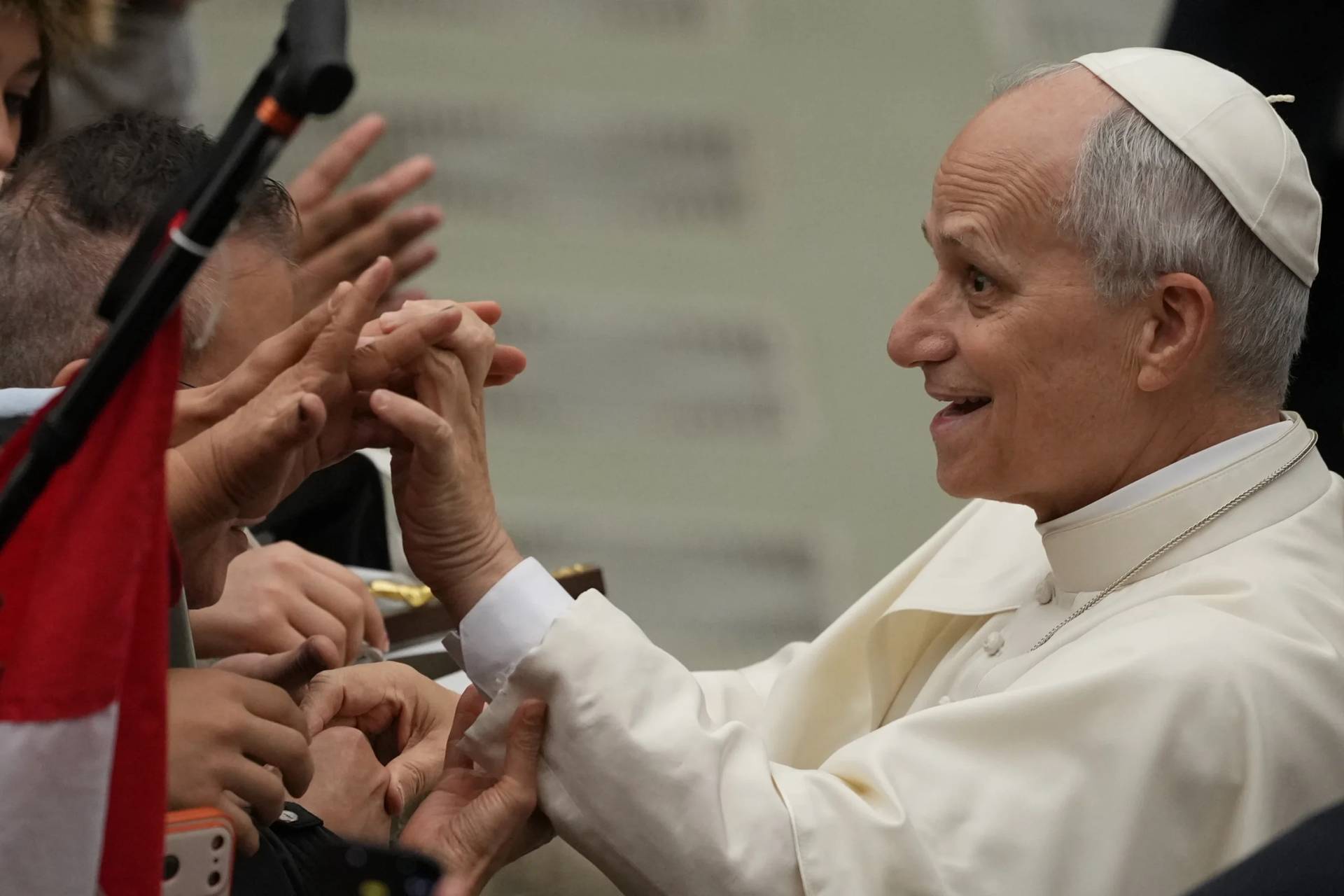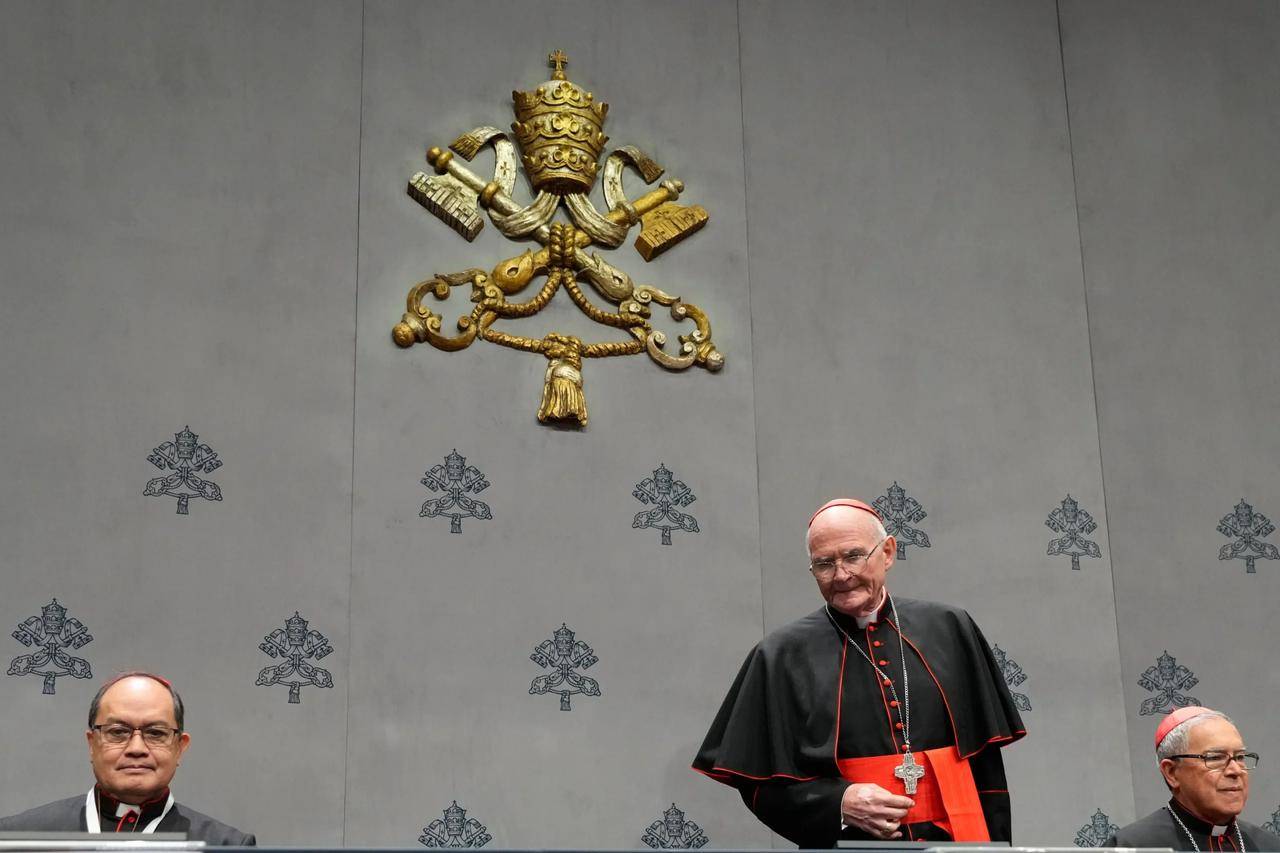ROME – A Chilean bishop has left the country for an unspecified period of “recovery of his physical, psychological and spiritual health,” following reports of accusations of sexual misconduct and abuse of power against personnel of the Archdiocese of Santiago, Chile’s capital city.
Bishop Cristián Roncagliolo, who served as the Vicar General of Santiago, disclosed his departure for Spain in a WhatsApp message to priests of the archdiocese.
Roncagliolo’s departure had been in the works at least since April, when he skipped a plenary assembly of the bishops allegedly due to health reasons. The 52-year-old prelate had been receiving treatment for cancer.
News of his exit was first reported by La Tercera, a newspaper in Chile, which suggested that Roncagliolo faces accusations of inappropriate sexual conduct as well as abuse of power.
According to Ana Maria Celis, President of the Council for the Prevention of Abuse and Victim Accompaniment of the Chilean bishops, “allegations against Roncagliolo had been received.” But, she told La Tercera, it was not the council’s role to do anything about the allegations beyond forwarding them to Rome.
Crux has found that one complaint was made informally by a victim of Cristian Precht, a Chilean priest found guilty of sexually abusing children and removed from the priesthood. Jaime Concha says he was also abused by several Marist brothers over 50 years ago, from the time he was 10 until he finished high school.
Concha, who said he’s made a formal complaint against Roncagliolo, said he hopes it might serve as context for the Vatican’s Congregation for Bishops, which is tasked with the investigation since there are no minors involved.
Concha said he met Roncagliolo the first week of October 2018, after the bishop tracked him down and offered to meet with him to talk about Precht as part of an archdiocesan reparation process. The prelate, he said, took him to a fish restaurant, “ordered the most expensive dish on the menu,” and throughout the lunch insisted on trying to get every detail of what Precht had done to him.
Concha recalled that Roncagliolo asked him very specific questions: “Where had it happened?” “How far had the priest gone?” “Were there kisses?”
“He became horny, he was euphoric, had a libidinous eye,” Concha told Crux. “His behavior was not that of a priest meeting with an abuse victim.”
When the meeting ended, Concha said, he felt “the same way I felt when I was a minor and I was abused. I felt guilty for having met with him. And once again, I was struck by the feeling that I had somehow provoked him.”
Eneas Espinoza, the spokesman for Chile’s Clerical Abuse Survivors Network, told Crux that, though they have received information on Roncagliolo, what they have thus far is “partial,” so he prefers to error on the side of caution.
“Roncagliolo moves comfortably in university environments, of teaching and academic research,” said Espinoza, who, like Concha, is a survivor of the Marist Brothers. “But he’s very well protected, so concrete information, at this point, is hard to give.”
Following the La Tercera article, Bishop Alberto Lorenzelli Rossi, who succeeded Roncagliolo as Vicar General of Santiago, sent an internal memo to collaborators of the archdiocese, which was eventually made public, claiming that the allegations “of sexual connotation” indicated in the article had not been reported to the archdiocese. However, he acknowledged that the Pastoral Office for Complaints had received complaints for labor mistreatment and abuse of power by three employees of the archdiocese, “facts the bishop himself recognized and, for which, he apologized.”
The complaint came from the archdiocesan communications team, Crux has confirmed. A diocesan priest with firsthand knowledge of what happened, but who is not authorized to speak about it, said on Saturday that at the peak of the Chilean abuse crisis in 2018, Roncagliolo, who had been an auxiliary in Santiago, took charge of the archdiocese, believing that he would eventually become the archbishop.
“He’s a man willing to put in 18 hours a day, but he doesn’t realize that because a person isn’t able to follow his speed it doesn’t mean the person is lazy or a bad worker,” the unnamed priest said. “He burned himself out, and in the process, purposefully or inadvertently, he burned out everyone around him, and he became increasingly erratic, rude, and verbally abusive.”
A second priest said that Roncagliolo is one of the “bright minds” among the Chilean bishops, but he is also “manipulative, and with a double moral life,” and that his was a case the church knows all too well: “Many had heard rumors, but much like with [former cardinal Theodore] McCarrick, everyone chose to look the other way, not ask too many questions.”
A church law expert with knowledge of the case told Crux that those who have thus far come forward “did so because they suffered a lot” at the hands of the bishop who had been “asked to keep a low profile” following the situation with the diocesan employees.
It is unclear if Roncagliolo’s request to keep a low profile was a suggestion or an actual sanction, and some of Santiago’s clergy, including other bishops, are upset that they too have been kept in the dark.
Complaints from the archdiocesan communications team and Roncagliolo’s inability to set boundaries in terms of working hours for diocesan employees were the reasons the archdiocesan education office was put in charge of the communications department.
Cardinal Celestino Aós Braco of Santiago reportedly forwarded those charges of abuse of power to the Vatican’s Congregation for Bishops, but, according to the statement, the Archdiocese of Santiago has not received a response. In the meantime, Aós had already removed Roncagliolo “from his functions as the head of the department where the complainants work.”
The internal memo from Lorenzelli also says that “Don Cristián’s decision to travel to Spain obeyed a direct instruction from the Congregation for Bishops,” saying that “the objective is to undergo a process of recovery of his physical, psychological and spiritual health.”
“We are aware that the untimeliness of his departure … plus the difficulty in communicating more and better within our institution, makes this news affect us as an ecclesial community,” Lorenzelli wrote, adding that the church is always “challenged by the pain of the victim-survivors, for whom we must move towards ever healthier and more transparent relationships throughout our institution.”
Roncagliolo’s abrupt departure is the latest difficulty for the Catholic Church in Chile, still reeling from what many observers believe is the most intense clerical sexual abuse crisis in the world.
Since 2018, two groups of clerical sexual abuse victims and also Chile’s entire bishops’ conference have traveled to Rome to brief Pope Francis on the crisis. At one point the bishops offered their resignations en masse, and, in the span of a year, eight were replaced, amounting to a third of the total bishops who were in office when the crisis began.
However, critics charge that the purge is incomplete. Of the prelates removed, none faced consequences beyond being forced out of office and all remain bishops in good standing. Officially no explanation was ever given as to why they were removed, despite several being under 75, the mandatory age for them to present their resignation.
The eight bishops had been credibly accused of either cover-up or of abusing minors and seminarians. As of April 2019, nine prelates, including Cardinal Francisco Javier Errazuriz, who was already the emeritus of Santiago when the turmoil began, had been subpoenaed by civil authorities.
The crisis has left a bitter taste in the mouths of many Chilean Catholics. The bishops’ conference was described to Crux by a local priest as “corrupt and criminal,” while another cleric argued that “all of them have a skeleton in their closet, and they threw (Bishop Juan) Barros – who was not innocent in terms of cover-up – under the bus.”
Several sources told Crux that Roncagliolo should have been removed in 2018, because even though “informal,” the allegations made against him of improper relations with seminarians were credible enough to, at the very least, merit a thorough investigation by the Congregation for Bishops.
The Roncagliolo case is a reminder of a similar scandal involving Bishop Gustavo Zanchetta of Argentina, who also at one point left his country for Spain ahead of accusations of both sexual and financial misconduct. In Zanchetta’s case, he was eventually given a Vatican position by Pope Francis before returning home to face criminal charges.
In March, Zanchetta was found guilty by an Argentine court and sentenced to four-and-a-half years in jail, which he is currently serving. He’s presently appealing the conviction.
Crux has been able to confirm that Spanish Jesuit Father German Arana was involved in the decision to send Roncagliolo to Spain, though he will not play a role in his treatment. Arana, seen as a figure who often operates behind the scene, was also involved in the “treatment” of Zanchetta and Barros.
Barros was one of four Chilean bishops mentored by Fernando Karadima, Chile’s most influential priest, who died after he was removed from the priesthood after being found guilty of sexual abuse.
In 2018, Francis dispatched two top Vatican officials to look into the accusations of cover-up against Barros.
Maltese Archbishop Charles Scicluna and Spanish Monsignor Jordi Bertomeu, officials of the Vatican’s’ Congregation for the Doctrine of the Faith that tries priests accused of abusing minors, ended up producing a report that was 2,300 pages long after collecting the testimonies of 64 people.
RELATED: Pope’s abuse investigators headed back to Chile June 12-19
Follow Inés San Martín on Twitter: @inesanma
